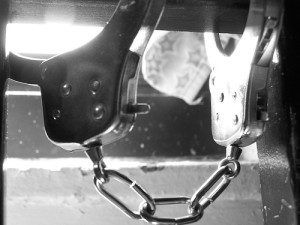The Illinois Supreme Court reversed the decision of a lower court of appeals and reinstated the first-degree murder conviction and 70-year sentence of Mark Downs, who shot and killed a 6-year-old boy, Nico Contreras, in his sleep. The convicted murderer fired a gun into a bedroom window at the Aurora home of the victim’s grandparents on July 10, 1996. During the trial. the court instructed the jury that it was their duty to define reasonable doubt in the case, which an appeals court ruled was incorrect and caused the conviction and sentence to be reversed. However, the Illinois Supreme Court said that the instruction given by the judge was correct and that the jury convicted Downs with a proper understanding of reasonable doubt.
No Jury Instruction for Reasonable Doubt in Illinois
In this case, the jury sent a note to the court asking whether its definition of reasonable doubt was 80 percent, 70 percent, or 60 percent. The U.S. Supreme Court has said that the U.S. Constitution does not require or prohibit a definition of reasonable doubt, and in Illinois, trial courts (and attorneys for the prosecution or the defense) are not allowed to provide jury instructions that define reasonable doubt. This is because “reasonable doubt” is difficult to define, and trial judges usually end up substituting other phrases that are equally difficult to understand. Therefore, the Illinois Supreme Court has ruled in the past that “reasonable doubt’ should speak for itself without any attempt at a definition from the trial court.
When Downs appealed his conviction and sentence, he argued that the trial court’s instruction to the jury that it was their duty to define reasonable doubt in this case was erroneous because it violated the prohibition on instructions about reasonable doubt. According to the appellate court, the only acceptable answer would have been to tell the jury that reasonable doubt is not defined as a percentage, and to just inform them that reasonable doubt is the highest standard of proof in law, and that they had received all of the instructions needed to answer its question. However, the Illinois Supreme Court disagreed, saying that in decisions going back a hundred years, it has consistently held that the term “reasonable doubt” doesn’t need to be defined because the words themselves are enough to convey its meaning.
First-degree murder
The shooting occurred during a period in the 1990s when Aurora experienced a long period of street gang violence. It was at this time that Downs and an accomplice, Elias Diaz, reportedly targeted Nico’s uncle for belonging to a rival gang. Elias Diaz allegedly planned the shooting and drove the getaway card. He was convicted and received a 60-year term.
Here, Elias Diaz did not actually carry out the killing. However, there was testimony during the trial that he drove two men to Nico’s house and ordered Downs to shoot a man whom he believed was a rival gang member. Diaz thought that the rival gang member at one time occupied the bedroom in which Nico slept and ordered the shooting to occur there.
In Illinois, first degree murder is defined as performing an act that causes someone to die with the intent to kill that individual or someone else, and with the knowledge that the act will probably cause death or great bodily harm to that individual or someone else. For first-degree murder, it is not necessary that you are the one to actually carry out the act of killing. Ordering someone to commit the act is enough to satisfy the definition.
Additionally, a person will still be guilty of first-degree murder even if the person who dies was not the intended target of the intent to kill. Here, the actual target was Nico’s uncle, and not Nico. However, the Illinois statute explicitly allows the intent to be transferred, and that even if someone else was killed other than the intended victim, it would still be considered first-degree murder.
Chicago Murder Attorney
If you or a loved one has been arrested on suspicion of murder, contact Chicago criminal defense attorney David L. Freidberg. With more than 17 years’ experience as a Chicago defense attorney in murder cases, David L. Freidberg has built a reputation as an aggressive defense attorney who will explore all avenues of possible defense, especially since a murder conviction has extremely serious consequences. Contact our Chicago, Skokie or DuPage County office 24/7 at 312-560-7100 to schedule a free initial consultation.
Photo Credit: Mindsay Mohan via Compfight cc
 Chicago Criminal Lawyer Blog
Chicago Criminal Lawyer Blog


